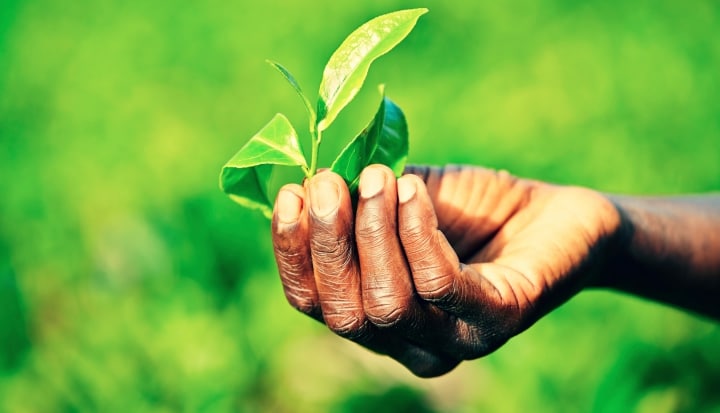Fairtrade’s new Workers’ Rights Strategy has thus far focused on increasing the benefits of Fairtrade for workers on large commercial farms.
However, we also recognise that many small producer organizations and their members also employ waged workers and that the number of such workers is increasing as a result of the growth of Fairtrade and the development of small farmer organizations. While the Fairtrade Standards do provide protection for all workers through our strict minimum labour requirements in terms of child labour, forced labour, freedom of association, discrimination and pesticide handling, we have increasingly recognised that deeper benefits of Fairtrade do not automatically extend to this group. In recognition of this, in 2013 our first step in bringing improvements was to strengthen the certification criteria for workers’ rights on small producer organizations.
However we equally recognise that, in order to improve the situation of workers, Fairtrade must work harder to ensure that all farmers within Fairtrade co-operatives have a secure and sustainable income that meets their needs and those of their workers. The welfare of the one is inextricably tied to that of the other.
As Marike de Peña, Chair of Fairtrade International puts it. “We must at all costs avoid that farmers and workers start to be regarded as being in adversarial camps. Many farmers are also workers, the two live side by side in the same small communities, both struggling against poverty and injustice.”
This year we are embarking on a wider project to understand how we can improve the situation of workers within small farmer organizations. This will be a two-pronged process. We will seek to enable Fairtrade to be a stronger tool in the empowerment of workers. At the same time we will explore how we can strengthen the security of small farmers, many of whom are also highly vulnerable, and support them to become model employers. We are delighted that the Fairtrade Producer Networks are working in partnership with us to lead this work, and the project will also be supported with expert advice and input from Fairtrade’s Workers Rights Advisory Committee.
The first task to be carried out is to understand the diverse situations of workers on small farms and the equally diverse situations of those who employ them. Quantitative and qualitative research will give us an over-arching picture of who works on Fairtrade farms. We will examine where there are good employment practices on small farms and conversely where workers rights and welfare are being inadequately addressed. We will learn what has enabled Fairtrade farmers to become good employers and where the principle barriers lie to improving conditions for their workers.
The information we generate will help us co-design a strategy, with farmers and workers themselves, as to how Fairtrade can become a stronger change agent. Our findings may point to inadequacies in our current Standard and processes, with regard to enabling workers’ rights, which Fairtrade would then need to address. However experience tells us that Standards will only be one step in the process.
Our Producer Networks are already urging us to invest more in the capacity of co-operatives and farmers to become better employers. We must continue to fight for farmers to receive fairer prices for all of their production and not just the small proportion that is currently sold under Fairtrade conditions. We must work with Fairtrade co-operatives to ensure that the benefits of Fairtrade are shared among all their members.
And we must continue to listen to workers, supporting the development of programmes which meet their concerns, in particular empowering them to understand their rights and voice their concerns and to strengthen their capacity to negotiate wages and other conditions with their employers.
This blog was previously published on Fairtrade International and is reproduced with permission.










